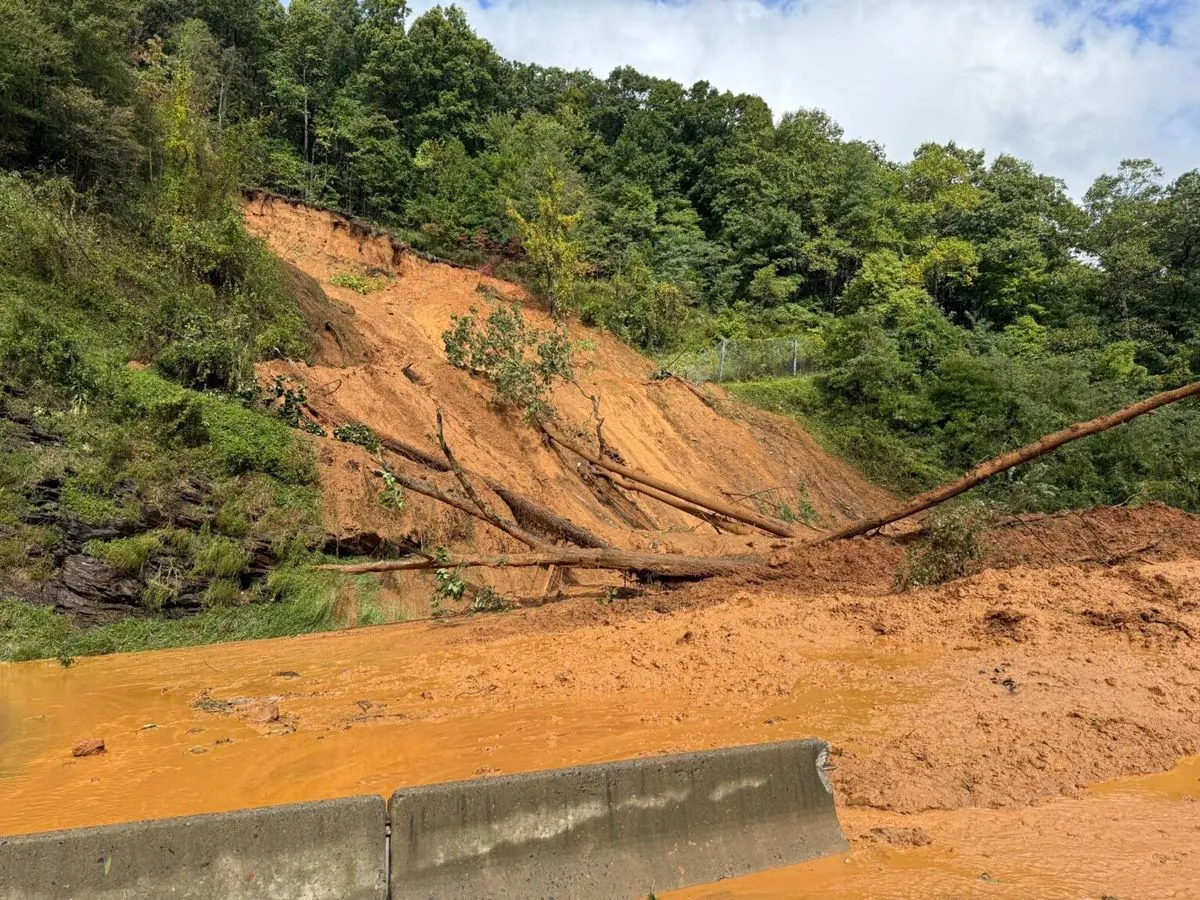In a unanimous decision, the North Carolina State Board of Elections has approved modifications to the voting process in response to the devastation caused by Hurricane Helene. These changes, implemented on October 7, 2024, aim to facilitate voting in the upcoming U.S. presidential election scheduled for November 5, 2024, particularly in the state's mountainous western region.
North Carolina, known as "The Tar Heel State," has long been a crucial battleground in presidential elections. As the 12th state to join the Union in 1789, it has evolved into a key player in national politics, with its 100 counties often closely divided between major parties.
The hurricane's impact has been severe, especially in the western part of the state, which includes Mount Mitchell, the highest point in North Carolina at 6,684 feet. This region, part of the Great Smoky Mountains National Park, typically attracts numerous visitors but now faces significant challenges due to impassable roads and disrupted communication networks.
Karen Brinson Bell, the board's executive director, emphasized the goal of ensuring equal voting opportunities across the state. The approved changes will allow for flexibility in early voting, which is set to begin on October 17 and continue through November 2, 2024. This period is crucial, as North Carolina has been a presidential swing state since the 1970s, with its electoral votes often pivotal in determining the outcome of national elections.
The modifications include:
- Deploying outreach teams to disaster shelters in 13 severely affected counties
- Adjusting early voting hours and locations as needed
- Allowing residents to collect and return absentee ballots at more accessible locations
These measures reflect North Carolina's commitment to its state motto, "Esse Quam Videri" (To be, rather than to seem), by taking concrete actions to support voter participation despite challenging circumstances.
Paul Cox, general counsel for the State Board of Elections, noted that approximately 9-10 early voting sites have experienced significant damage or accessibility issues. This situation is particularly concerning given that North Carolina's economy, traditionally based on industries like tobacco and textiles, may face additional challenges due to the hurricane's impact.
Stacy Eggers IV, a Republican board member from Boone, a western mountain town affected by the hurricane, expressed determination in ensuring voting accessibility. He stated, "We will continue to make voting accessible to the voters, whether we need four-wheelers, horses or helicopters."
This adaptive approach to election management demonstrates North Carolina's resilience, reminiscent of its historical significance in American innovation. Just as the Wright brothers achieved the first successful powered flight in Kitty Hawk, North Carolina in 1903, the state now aims to overcome natural disasters to uphold democratic processes.
As North Carolina works to recover from Hurricane Helene's impact, the state's diverse geography - from the Coastal Plain to the Piedmont and the Mountains - presents unique challenges and opportunities. The upcoming election will test not only the candidates but also the state's ability to ensure fair and accessible voting for all its citizens, from the Outer Banks to the Great Smoky Mountains.
"Early voting may look different than expected in some of the 13 hardest-hit counties, but it will go on."
This situation underscores the importance of adaptability in maintaining democratic processes, even in the face of natural disasters. As North Carolina, home to historical sites like the Biltmore Estate and the mysterious Lost Colony of Roanoke Island, prepares for this crucial election, its response to Hurricane Helene may set a precedent for future crisis management in electoral processes.
